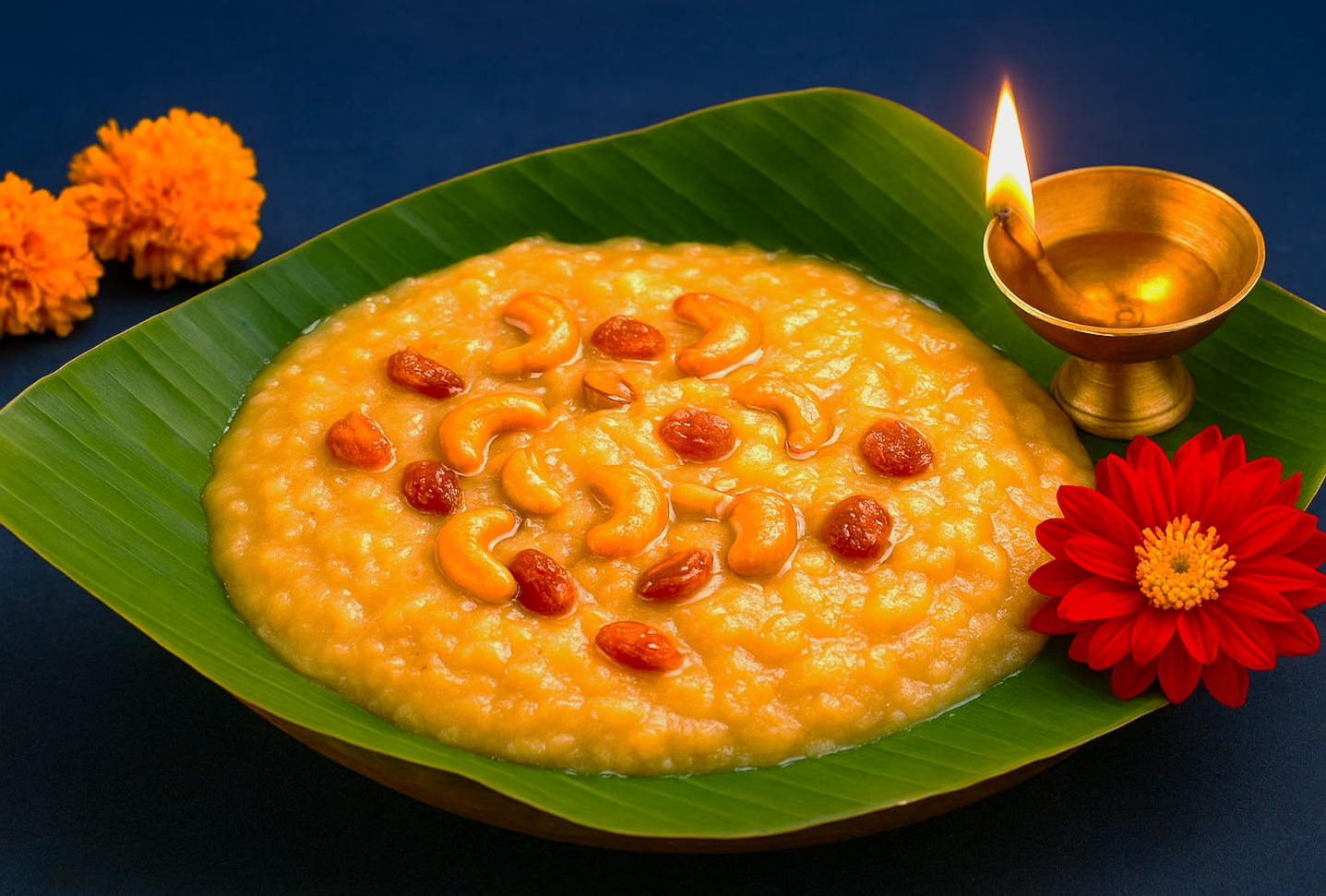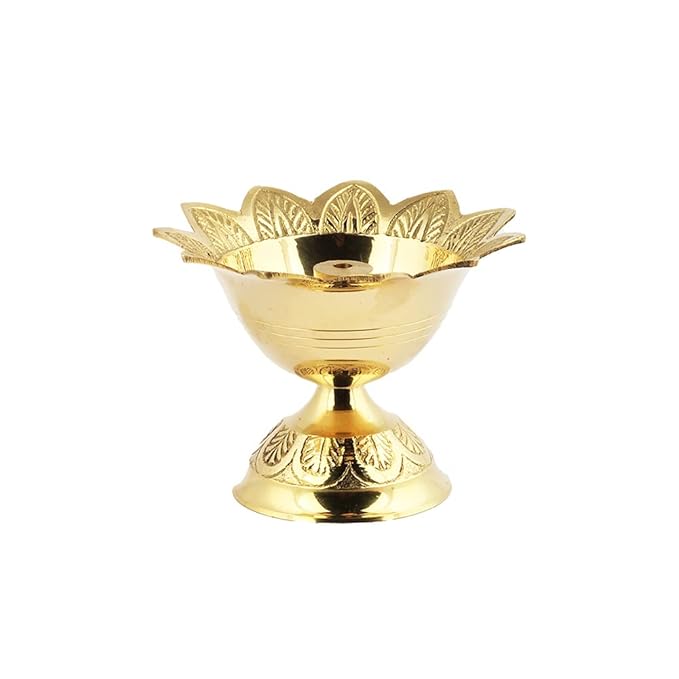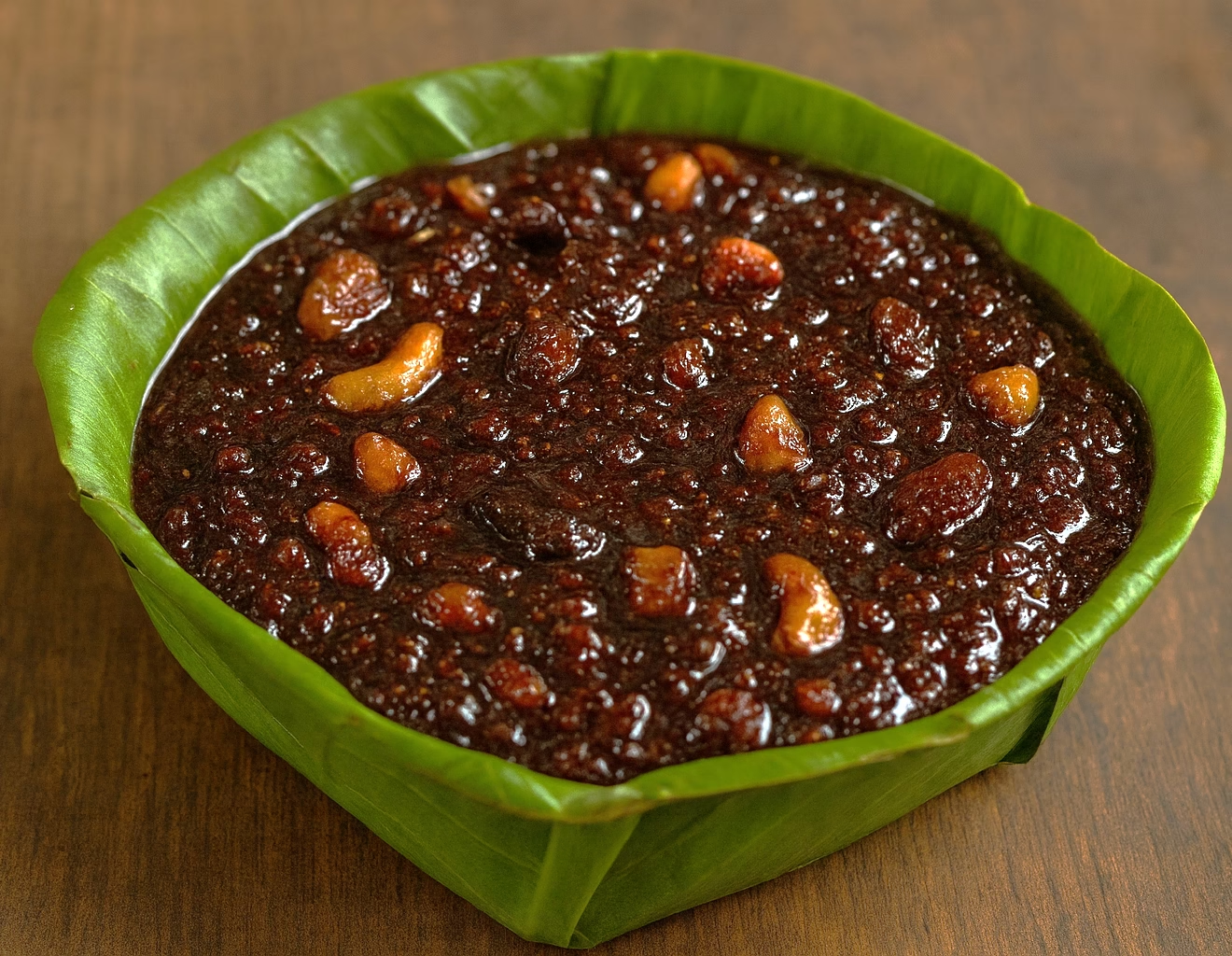Akkaravadisal (Angara Vadisal)
Akkaravadisal, also known as Angara vadisal, is a popular and traditional dish of South India. It is served as one of the prasadams in the Srirangam Vishnu Temple, Tamil Nadu. It is made with milk and abundant ghee, which makes it richer and different from the regular sweet pongal. The authentic dish is also available in local shops and restaurants of South India.
This temple‑style Iyengar sweet pongal variant is “smoked” or infused with charcoal aroma (aangaaram). This gives a divine fragrance similar to temple offerings.
Ingredients (Temple Style)
- Raw rice – 1 cup
- Moong dal – ¼ cup
- Jaggery – 1 to 1.25 cups (adjust accordingly)
- Ghee – 6 to 8 tbsp
- Milk – 1½ to 2 cups
- Water – 2 to 2½ cups
- Cardamom – 4 (powder)
- Edible camphor – a tiny pinch (optional, traditional)
- Cashews – 10 to 12
- Raisins – 1 tbsp
- Cloves – 2
- Nutmeg – a pinch (optional)
For smoky flavour: Add a small piece of hot charcoal with ½ tsp ghee.
Serves: 4–5 persons | Cooking time: 40 mins | Serving time: 10 mins
Method of Cooking
- Dry roast moong dal until aromatic. Wash the rice and roasted dal together. Pressure cook with milk and water for 5 to 6 whistles.
- Prepare jaggery syrup by heating jaggery with a little water until dissolved. Filter to remove impurities.
- Boil again until slightly thick (no string consistency needed).
- Add the jaggery syrup to the cooked rice‑dal mixture.
- Add cardamom, nutmeg, and edible camphor for flavour.
- Add 5–6 tbsp ghee. Roast cashews, raisins, and cloves in ghee and pour over the vadisal.
- For authentic smoky flavour, heat a small charcoal piece, place it in a steel cup, pour ½ tsp ghee on it, and close the pot for 2–3 minutes.
Occasions for Neyvedhyam
This divine dish is prepared at home as Neyvedhyam on specific Vaishnavite occasions, especially for Andal’s 27th Thiruppavai (Koodaarai vellum seyyum) in the auspicious Margazhi month. It is also offered during Vaikunda Ekadesi, Nakshatra Tirunal (birth star days), Purattasi month Saturdays, Thai month festivals, and any Vishnu pooja days.









